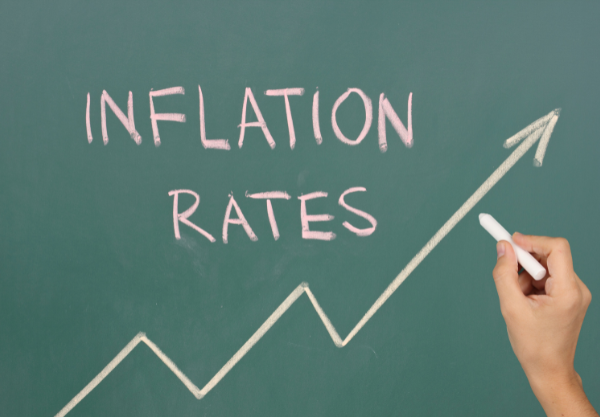What is the UK inflation rate and how does it affect you?
Prices in the UK experienced a 3.4% increase in the year, marking the lowest rate since September 2021.
Despite this, the figure remains higher than the Bank of England's 2% target, prompting Bank governor Andrew Bailey to assert that it is premature to consider reducing interest rates.
What is Inflation?
Inflation denotes the gradual rise in the price of goods and services over time.
For instance, if a bottle of milk is priced at £1 but rises to £1.05 a year later, the annual milk inflation rate stands at 5%.
How is UK's Inflation Measured?
The Office for National Statistics (ONS) monitors the prices of numerous everyday items, encompassing food and fuel.
This "basket of goods" is regularly updated to mirror shifting consumer preferences. Notably, in 2024, additions like vinyl records and air fryers were included while hand sanitiser was removed.
The ONS evaluates price alterations over the preceding 12 months to compute inflation.
The primary metric employed is the Consumer Prices Index (CPI).
One factor contributing to the decline in CPI to 3.4% in February was a surge in petrol and diesel costs, offsetting a decrease in food price inflation.
Understanding Core Inflation
When deliberating on interest rates, the Bank of England also examines "core inflation," which excludes energy, food, alcohol, and tobacco prices, offering a clearer insight into price escalations.
Core inflation stood at 4.5% in February.
Reasons Behind Persistent Price Escalation
Rising food and energy expenses were pivotal in driving the UK's recent inflation surge.
Following the Covid pandemic, there was heightened demand for oil and gas, further exacerbated by the conflict arising from Russia's invasion of Ukraine, which constrained global supplies.
Additionally, the conflict led to a decrease in available grain stocks, leading to elevated food prices.
Although inflation peaked at 11.1% in October 2022, it has subsided considerably since then. However, lower inflation doesn't imply declining prices, but rather a slower rate of increase.
A contributing factor to sustained high inflation in the UK is labor shortages, which have driven up staffing costs.
The Impact of Inflation Disparity
The Bank of England's objective is to maintain inflation at 2%.
During periods of significantly elevated inflation, the Bank raises interest rates, reaching 5.25% in this instance.
The rationale is that by increasing borrowing costs, consumer spending decreases, potentially leading to higher savings rates.
Consequently, reduced demand for goods can temper price hikes. However, this strategy must be carefully balanced as increased borrowing costs pose risks to the economy.
For instance, homeowners contend with higher mortgage repayments, which might outweigh improved savings deals.
Furthermore, businesses curtail borrowing, diminishing job creation prospects, with some even resorting to staff cuts and reduced investments.
Can the Government Claim Credit for Inflation Mitigation? - When can we anticipate a decline in inflation and interest rates?
The Bank of England anticipates a continued descent in inflation throughout 2024, hinting at potential interest rate cuts.
In March, the Bank maintained rates at 5.25% for the fifth consecutive time. Governor Andrew Bailey acknowledged "encouraging signs" of declining inflation but stressed the need for assurance that it would regress to the 2% target and remain there.
"We're not yet at the point where we can cut interest rates, but things are moving in the right direction," he added.
Many economists predict a rate cut in early summer.
Official figures indicate that wage growth outstrips rising prices, albeit at a decelerated rate.
Excluding bonuses, pay increased by 6.2% in the final quarter of 2023 compared to the corresponding period the previous year. Adjusted for inflation, this translates to a 1.9% increase in pay.
Various sectors, including rail, healthcare, and education, have staged strikes over wage concerns.
The government contends that substantial pay hikes could exacerbate inflation by prompting companies to raise prices.
Exploring Inflation and Interest Rate Trends in Europe and the US.
Numerous countries are grappling with a cost-of-living squeeze and heightened interest rates.
However, at 3.4%, UK inflation remains above that of the EU and US.
In February, the annual inflation rate for eurozone countries stood at 2.6%, marginally down from 2.8% in January.
Article by BBC News
Join Our FREE Business Owners Hub
Get access to our latest blogs, PDF downloads and updates.


